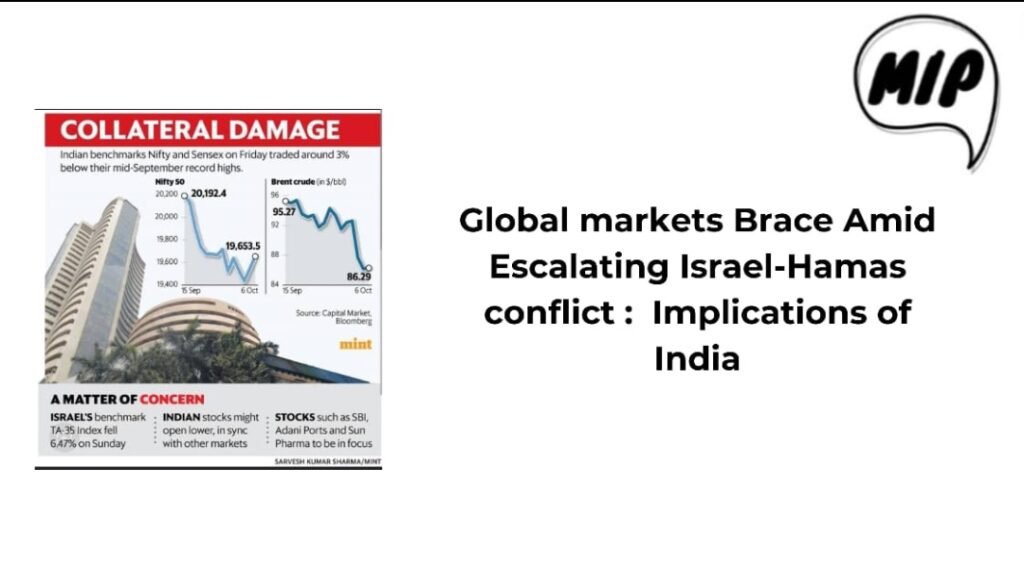
In recent days, India’s stock market index has experienced a nearly 5% decline, mirroring the jitteriness in global markets due to the escalating Israel-Hamas conflict. The downturn in emerging market stock indices, ongoing for about 12 weeks, intensified with concerns about the global economy’s weakness.
A concerning convergence of factors amplifies this situation. Crude oil prices are rising, the US dollar is strengthening driven by high 10-year bond yields reaching 5%, a level last seen in 2007 before the global financial crisis. These high bond yields indicate elevated inflationary expectations, signaling the likelihood of continued interest rate hikes by institutions like the Federal Reserve and India’s RBI.
The latter has emphasized the need for vigilant inflation monitoring following the Hamas-Israel war, especially concerning its potential impact on the broader West Asia region. This heightened uncertainty isn’t favorable news for governments around the world, particularly those facing upcoming elections.
Market sentiments are also sensitive to international leaders’ words, with UN Secretary-General
António Guterres’ push for adherence to international law influencing market psychology. The conflict’s devastating toll in Gaza, where over 7,000 civilians have died in a few weeks, adds to global apprehension.Amid these concerns, some analysts suggest the market’s resilience to the Israel-Hamas conflict, hoping it won’t escalate further. This optimism might be based on the cautious approach observed during the Russia-Ukraine conflict, where strategic decisions mitigated economic repercussions. However, the situation remains fragile. The involvement of major powers in the conflict and the risk of escalation could disrupt global markets. President Biden’s advice to Israel, urging restraint in response, underscores the need for rational responses to prevent economic turmoil.
The ongoing exodus of foreign institutional money from Indian markets, along with a slowdown in foreign direct investment and reduced global trade, paints a challenging economic picture for India. With the looming Lok Sabha elections in 2024, India braces for a period of economic uncertainty and cautious strategies